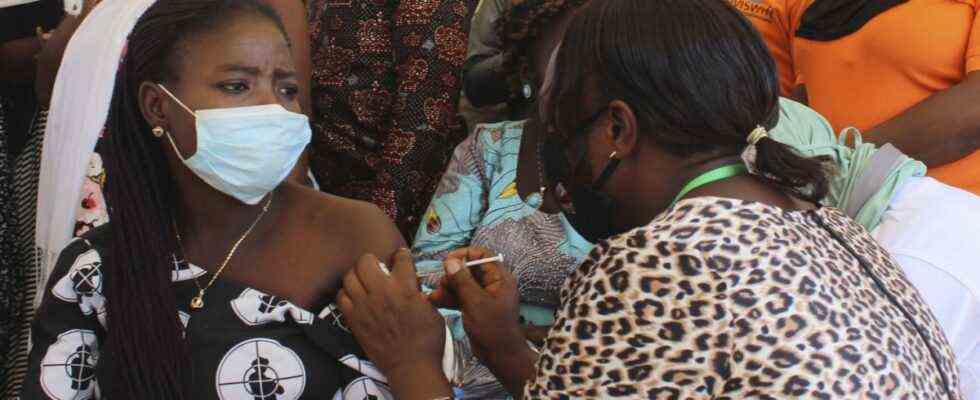The warning comes from almost at the top: The Federal Government and the EU may please end their resistance to the release of patents for Covid vaccines, said Cardinal Peter Turkson now. The Ghanaian is the Pope’s development aid minister. His boss, Pope Francis, has also called for this step several times. Also the World Health Organization WHO callsthat pharmaceutical companies such as Biontech from Mainz should lose their property rights for the scarce vaccine. India and South Africa brought such a suggestion joined the World Trade Organization a year ago – and found support from developing countries as well as the USA.
The sharp gradient in the vaccine supply serves the supporters of this idea as ammunition. While booster vaccinations are distributed in rich countries, in many African countries not even one in ten adults has received the saving spades. This vaccine apartheid is a blatant injustice and dangerous for the wealthy states too. Because the virus can spread cheerfully in regions where there is no vaccine and mutate in the process. These mutants then attract their global triumph – just like Omikron.
So there is no doubt that poor countries need to get a lot more vaccine very quickly. But revoking patents would be of no use. The debate about it only distracts from other, much more promising approaches.
In order to contain Covid globally, the production capacities for vaccines must be expanded rapidly and drastically. A lot has already happened. The factories in the EU alone can now produce 300 million doses per month, which is sensational when you remember how scarce vaccines were at the beginning of the year. But it’s just not enough. If the patents were lifted, other pharmaceutical companies would be able to manufacture the funds without the developers, such as Biontech, being able to sue. In theory, this move could really increase production.
Patents create incentives for research
In practice, however, it is very unlikely that companies would be able to do this without the active support of the established providers Biontech, Pfizer or Moderna. After all, the manufacture of this modern vaccine is highly complex; Experience, qualified employees and a network of specialized suppliers are required. If you don’t have this, it doesn’t help to be able to use Biontech’s patents with impunity.
At the same time, the release of the patents would send a completely wrong mark: Patent protection is a reward for inventors; it provides incentives to start expensive and risky research projects. Undermining patent protection, no matter how noble the reason, leads to less investment in research.
A better way to quickly expand production would be to give subsidies to those manufacturers who have proven they can do the job, such as Biontech and Pfizer. The companies are ramping up their production anyway, but there are economic limits: the factories are expensive and the need for vaccinations will – hopefully – decrease rapidly when Covid is under control worldwide. From a manager’s point of view, it is a waste to pull up works that will no longer be needed in two years. But such works are now needed to get enough vaccine for underserved states.
A patent release does not cost the state anything
The EU, the USA and other rich countries should therefore encourage the construction of these sensible excess capacities – preferably directly in Africa. On the continent, for example, the EU provides support the structure from vaccine factories; Biontech participates.
In addition, the wealthy countries should donate more vaccine to poor countries – or transfer financial aid so that the governments can order the vaccine themselves. Such cash injections are also necessary so that poor countries create the infrastructure to distribute and inject the funds in a well-cooled manner. the Covax initiative, which donates vaccines to poor countries, is currently struggling to find adequately prepared buyers.
All of this would cost a lot of taxpayers’ money in rich countries – unlike the release of patents. But the billions would be invested excellently.

